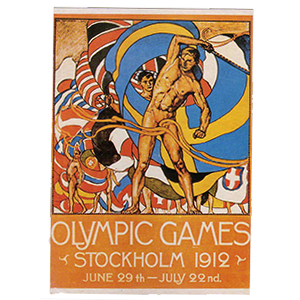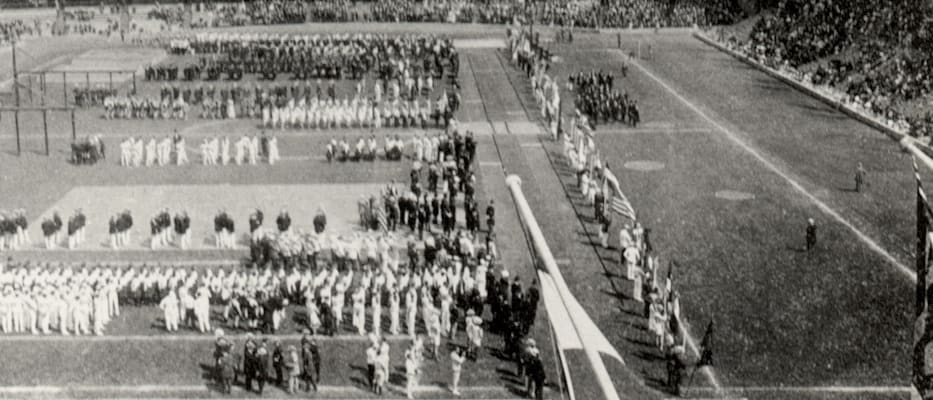Olympic Games Stockholm 1912

Stockholm 1912
About the Games
On Time
The Stockholm Games were a model of efficiency. The Swedish hosts introduced the first Olympic use of automatic timing devices for the track events, the photo finish and a public address system.
Last Man Standing
If there was an unofficial theme of the 1912 Games, it was endurance. The course for the cycling road race was 320km (199 miles), the longest race of any kind in Olympic history. In Greco-Roman wrestling, the middleweight semi-final match between Russian Martin Klein and Finland’s Alfred Asikainen lasted 11 hours.
Debuts and Firsts
For the first time, competitors in the Games came from all five continents. It was also the first time Japan participated. The modern pentathlon, women’s swimming and women’s diving all made their Olympic debuts.
Mighty Jim
Jim Thorpe, an Indigenous man from Oklahoma, won the pentathlon and decathlon by huge margins, and was described by King Gustav V of Sweden as "the greatest athlete in the world". He was later disqualified when it was discovered that he had accepted a modest sum to play baseball before the Games. In 1982, the Executive Board of the International Olympic Committee decided to reinstate Jim Thorpe and to give back to his daughter the medals that were rightfully his. His feat was immortalised in the film "The Bronze Man" by Michael Curtiz, with Burt Lancaster in the role of Thorpe.
Medal Table
See the list of teams and medals won by each.
1912
Featured Athletes
Replays from
Stockholm 1912
All Replays1912
Discover the Games
The Brand
A visual identity is developed for each edition of the Olympic Games.Brand
The Medals
Beginning as an olive wreath, medal designs have evolved over the years.Medals

